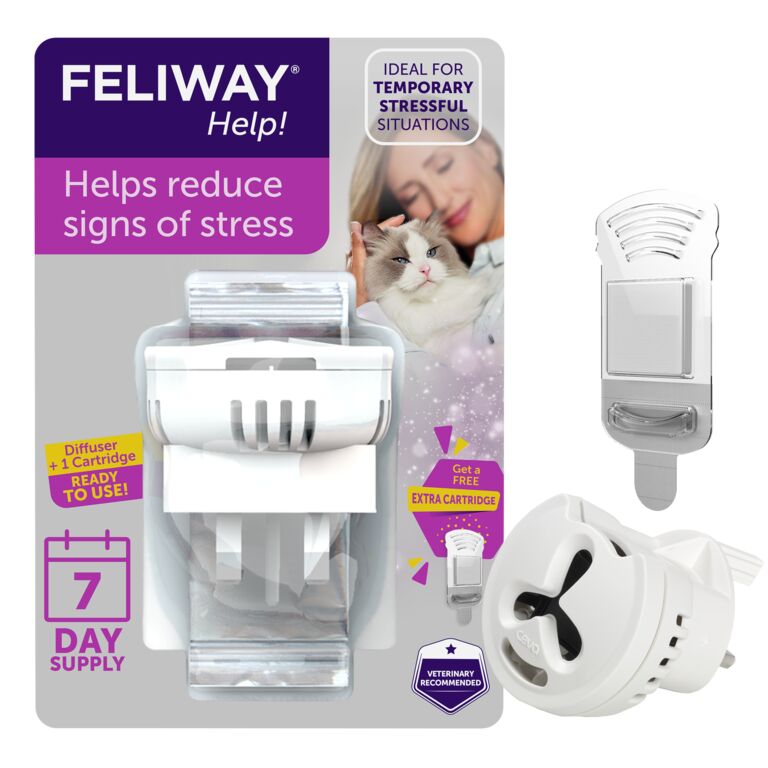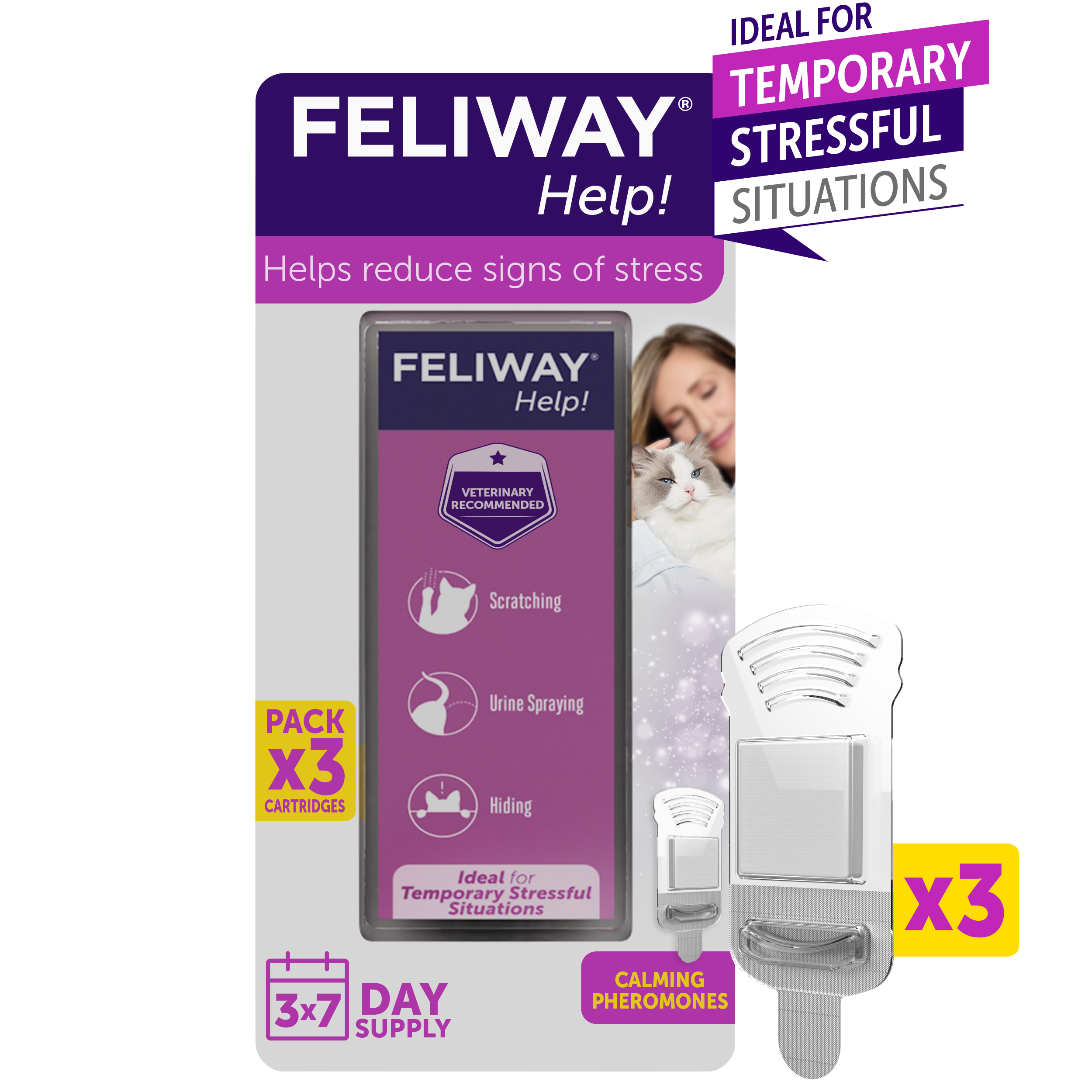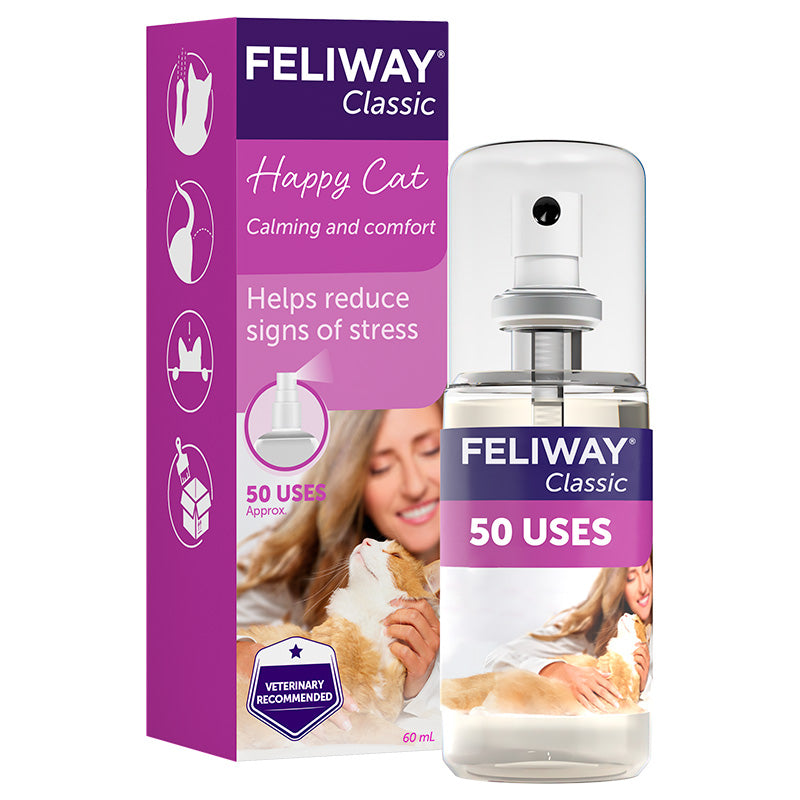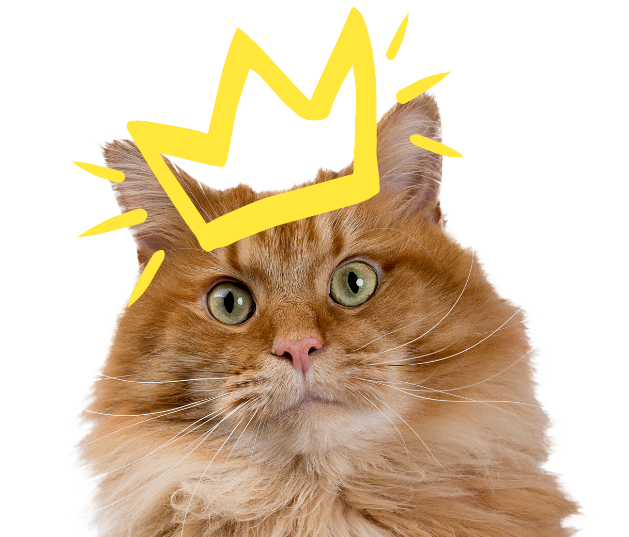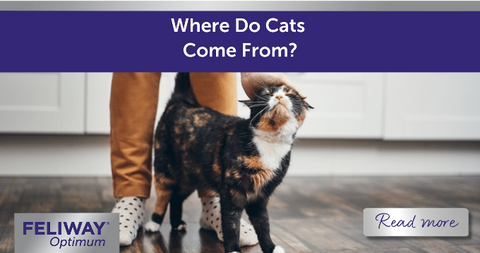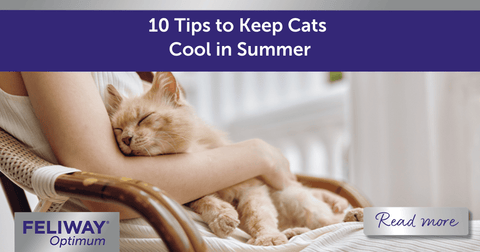
Why isn’t my Cat Eating? A Kitty’s Point of View
Just like humans, it’s important that we cats eat regularly! This helps us maintain our correct body weight and provides us with the energy we need to continue with our daily routine of climbing, scratching, hunting, playing and sleeping!
Reasons why your cat isn’t eating
Sometimes however, we lose our appetite and stop eating. Below are a few reasons why we might turn our noses up at the food bowl.
A medical issue
My pet parents keep a very close eye on my overall health and particularly what I eat, so I know I’m in very good hands.
If your adult cat seems to be off their food for 24 hours, but they are drinking water, experts say they won’t experience long-term effects. If your kitten is less than 6 weeks old, they should not go without food for more than 12 hours.
If your cat has stopped eating or drinking for longer than this, they should be checked out by a vet immediately so that you can rule out any underlying conditions that may be impacting their appetite.
Stress or anxiety
Changes around the home can make us feel anxious to the point we stop eating.
- Have you been moving furniture around? Sometimes moving things can disturb us, particularly if a change is near to our resources. If things are changing around the house, try to do this gradually. Keep resources such as our litter tray in the same area – we don’t like searching for the toilet when we need to go!
- Is there a new baby in the house? To help us feel less excluded, be sure to spend some time every day interacting and playing with us. It also helps to introduce us to new items and any smells or sounds they make early – and introduce us to your new baby under supervision of course!
- Have you had visitors? My pet parents make sure that visitors to our house know how to interact with me. I feel quite comfortable knowing that they are not going to try and pick me up.
- Have you brought a new kitten into the home? Living in a multi-cat household can be stressful for us cats if we aren’t introduced carefully. Get it right from the start by making gradual introductions, making sure we have separate resources.
We love routine, so if you find that we’re hiding more than usual, urine spraying, scratching furniture or that we have unusual eating patterns, we may be reacting to changes around the home.
To help us cope, make sure you plan ahead when you know that changes are due to happen. Make any changes over time while maintaining our routine (mealtimes, playtime etc.) and ensure we can always access quiet, safe places when we feel the need.
FELIWAY Optimum is always plugged in where I spend most of my time – it certainly makes me feel more calm and less anxious about changes.
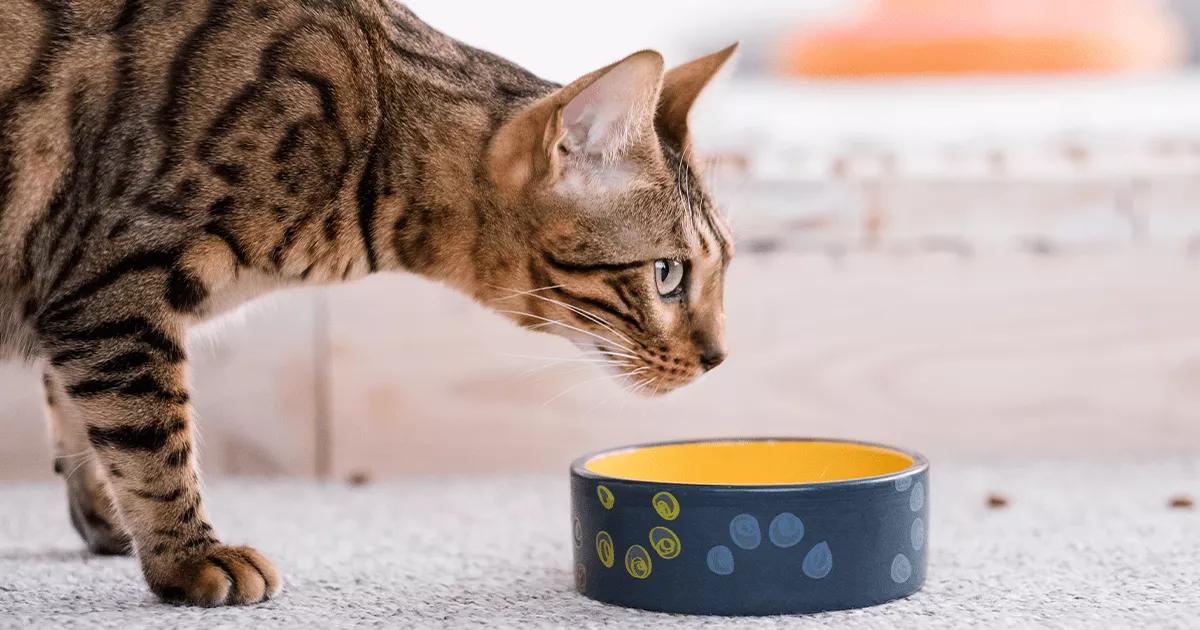
We don’t get there in time
It’s important each cat has its own food station, especially if you have a multicat household, and that they are in separate locations. We should be able to access food without having to interact with another cat – we regard two bowls next to each other as one feeding station!
If our feeding bowls are close together, you may find that one cat may eat more than their share, disturb the second cat. This means you won’t be able to monitor our food intake accurately.
The food doesn’t appeal
Just like humans, cats can have different tastes – some like dry food, while others like wet food. If your cat isn’t eating, you should consider whether they like the food. It’s possible that the taste or texture of the food we’re given just doesn’t agree with us.
- Only give your cat the recommended amount of food – too much might be overwhelming, and can be bad for our weight!
- Check that the ingredients in our preferred food haven’t changed. Sometimes we can detect changes in the manufacturing process by taste alone!
- If feeding your cat dry food, make sure they have plenty of water to help wash it down.
- If you change our food, do it slowly, so we can get used to the change gradually.
- Always store the food correctly – don’t forget that dry food can turn stale and unpalatable, just as wet food can go off.
- Always make sure the food you buy contains the right nutrients your cat needs.
- Try using a puzzle or activity feeder to keep us entertained, or help us to slow down if we like to eat quickly!
We get confused!
My food bowl was in a nice quiet part of the kitchen, but then my pet parent bought a new washing machine so the kitchen had to be rearranged.
It’s important that our food station is in a quiet area, away from cat flaps and windows and noisy washing machines, so that we feel safe when we’re eating. I was mighty relieved when she put my bowl back where it used to be, so I can enjoy my food in peace without the washing machine nearby.
My whiskers are super sensitive
The choice of food bowl is so important for a cat! You see, we have very sensitive whiskers which can go into overdrive if they come into contact with the side of our food bowl when we’re eating – and this might make it too uncomfortable for us to eat.
When buying a bowl for your cat make sure it’s either a wide flat dish with very shallow edges, or a small bowl that only our mouth can fit into, with our whiskers over the top.
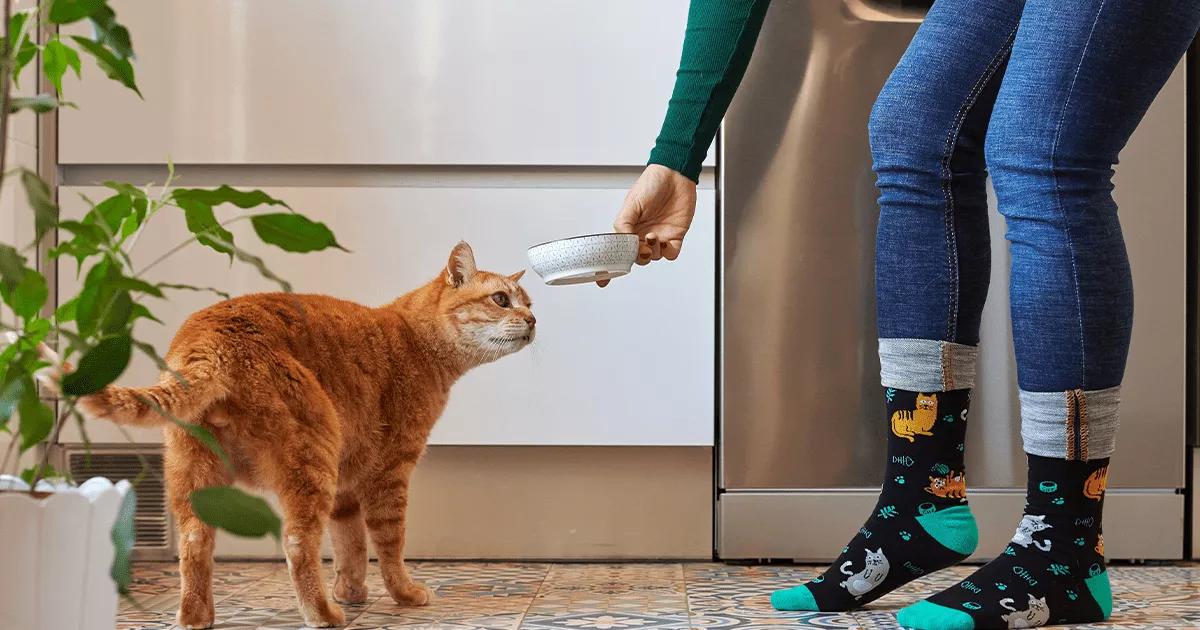
We’ve been on a journey
Although cats prefer to be at home, I’ll accept that we do have to travel sometimes. However, not all cats like going on a journey. When some of us see the carrier appear, we may associate this with travel or a visit to the vet – and this can be enough to make us feel anxious and stop eating.
It’s a strange environment for a cat to be in a car! The movement can also give us motion sickness, which may be another reason for not eating. Give us time after a journey to readjust.
If you are planning a journey with us, take steps to calm your cat for travel to avoid anxiety and, hopefully, avoid a loss of appetite.
We have kind neighbours!
Our nextdoor neighbours are really friendly and they are used to me visiting their garden and walking along the top of their fence. They started to give me lots of treats which I really enjoyed – but it did put me off my mealtime food.
Luckily they were very understanding when my pet parents spoke with them and explained that I wasn’t eating my food at home. They have now come to an agreement that they can only give me one very small treat each day – that way everyone is happy, including me!
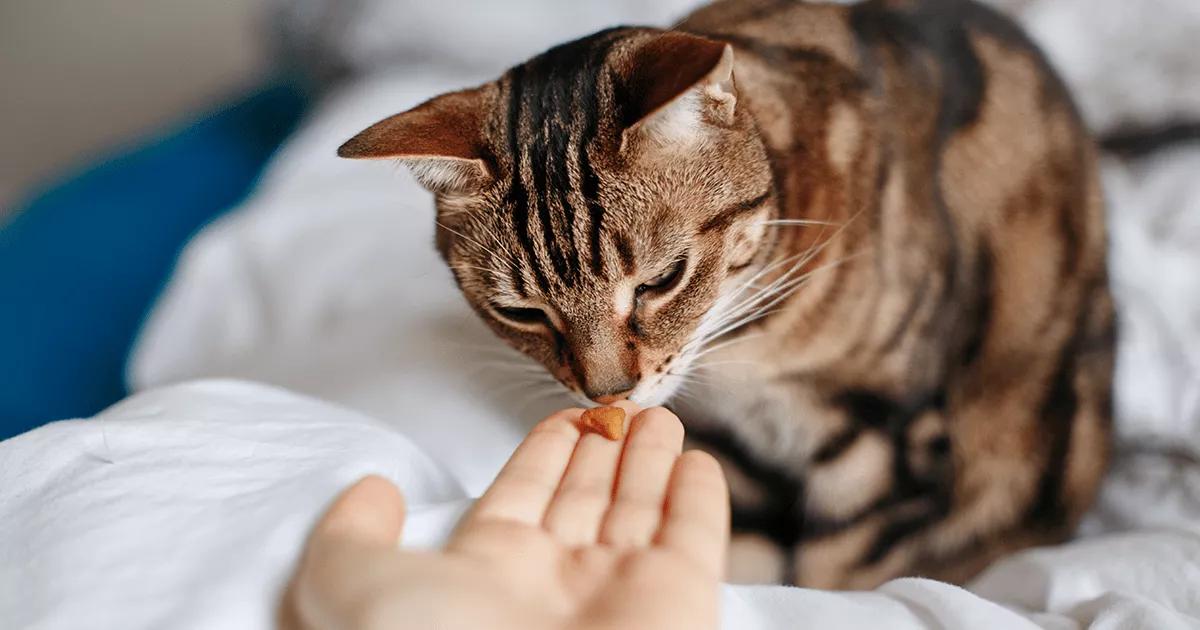
Ways to tempt your cat to eat
Remember that smell is important to cats – if we like how something smells, we are more likely to be tempted! If your cat does not seem interested in eating, try:
- Warming the food to room temperature – this will enhance the smell.
- Adding a little canned food, which typically has a stronger smell.
- Adding a little low sodium broth to dry food, which might make it more palatable.
- Using a softer food which could be more digestible.
- Offering smaller amounts more regularly.
- Ensuring you remove any old food from the bowl if not eaten. Believe me, we don’t like dried out leftovers!













